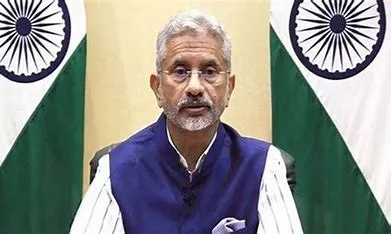The Supreme Court in the case Nanhe v. State of UP observed and has invoked the doctrine of transferred malice to uphold the conviction of the appellant in a murder case as stated under section 302 of the Indian Penal Code, IPC.
The court in the case observed that the appellant in the case had no intention to kill the deceased as he had fired with an intention to settle his score with another person Mahendra with whom he had entered into the harsh argument.
It has been held by the said court that it had made no difference since ‘Doctrine of Transfer of Malice or Transmigration of Motive’ provides that where there is ‘mens rea’ of committing an offence and it can be transferred to another.
The Supreme Court bench comprising of Justices Abhay S. Oka and Justice Pankaj Mithal in the case was hearing the appeal against the Allahabad High Court judgment wherein it has been upheld that the conviction of the appellant under section 302 IPC in a murder case.
The court also illustrated an example could be given of a person who had the intention to kill a person but by mistake kills another person, then he would still be held guilty of committing the murder even in the absence of intention to kill that particular person.
In the present case, the informant Mohd. Ali stated that on 30.05.2007, he went to a shop with his son Saddam Hussain i.e., the deceased. Thus, at the time, Mahendra and Nanhe(appellant) were quarrelling. The appellant then fired a shot that pierced the neck of his son who died, while Mahendra sustained the injuries.
However, the appellant was charged under Section 304, Section 308 of the Indian Penal Code IPC, and Section 25 of the Arms Act, 1959.
The Trial Court found him guilty of murder under Section 302 IPC and sentenced him to life imprisonment on 14.05.2010. The issue raised before the court was weather under Section 302 of the Indian Penal Code, IPC could be reduced to culpable homicide not amounting to murder falling under the second part of Section 304 IPC since the appellant had no intention to kill the deceased?
The court in the case referred to Section 301 of IPC which embodies the ‘Doctrine of Transfer of Malice or Transmigration of Motive. Thus, it also provides that where there is the ‘mens rea’ of committing an offence, it can be transferred to another. The court also explained that if a person has an intention to commit an offense or cause the death of any person but kills one whose death he never intended to cause, he would still be guilty of causing death.
The court referred to the case Shankarlal Kacharabhai v. State of Gujarat, wherein it explained the scope of section 301 lucidly, wherein it observed that under the section, If A aims his shot at B, but it misses B either because B moves out of the range of the shot or because the shot misses the mark and hits some other person C, whether within sight or out of sight, under S.301, A is deemed to have hit C with an intention to kill him and to invoke section 301 of the Indian Penal Code, IPC, A shall not have any intention to cause the death or the knowledge that he is likely to cause the death of C.
The court also referred to the case Rajbir Singh v. State of U.P., wherein the court approached the High Court and has set aside the conviction on the ground that the firing was not aimed at the victim and that he was accidently injured.
The court in the case observed and has held that it to be in complete ignorance of Section 301 IPC.
Further, the court referred to the Jagpal Singh’s case, wherein the accused was held liable under Section 302 IPC for accidentally causing harm to a particular person, even if the initial intent was directed at someone else.
The court while considering the facts and circumstances of the case held that the intention to kill some other person is not material in as much as he had the intention of committing the aforesaid offense though accidentally, he might have killed another person.
Accordingly, the court upheld the judgement of the High Court convicting him under section 302 IPC for murder.

















